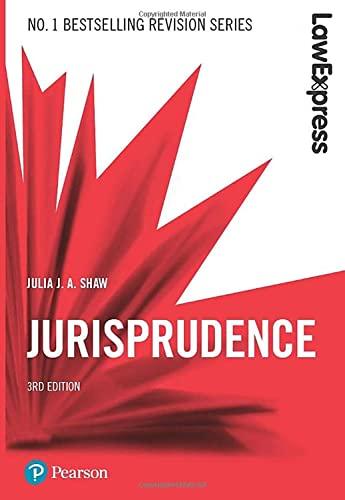Question
While in theory, justice is blind, we know in practice it often isn't. We all are subject to unconscious or implicit biases that may affect
While in theory, "justice is blind," we know in practice it often isn't. We all are subject to unconscious or implicit biases that may affect how we perceive a person or situation. Unlike explicit bias (which reflects the attitudes or beliefs that one endorses at a conscious level), implicit bias is the bias in judgment and/or behavior that results from subtle cognitive processes (e.g., implicit attitudes and implicit stereotypes) that often operate at a level below conscious awareness and without intentional control. The underlying implicit attitudes and stereotypes responsible for implicit bias are those beliefs or simple associations that a person makes between an object and its evaluation that "...are automatically activated by the mere presence (actual or symbolic) of the attitude object."
- Is implicit bias something lawyers should be concerned about?
- Describe a situation in which implicit bias was at play, or where implicit bias affected your experience, your behavior, or what you observed in others.
- How do you think implicit bias affects the administration of justice in the American legal system?
- Given that you have a responsibility to zealously advocate on behalf of your client, do you think it is appropriate to use other's biases to benefit your client?
- And what can you, as future lawyers, do to counter implicit bias in the American legal system?
Step by Step Solution
There are 3 Steps involved in it
Step: 1

Get Instant Access to Expert-Tailored Solutions
See step-by-step solutions with expert insights and AI powered tools for academic success
Step: 2

Step: 3

Ace Your Homework with AI
Get the answers you need in no time with our AI-driven, step-by-step assistance
Get Started


